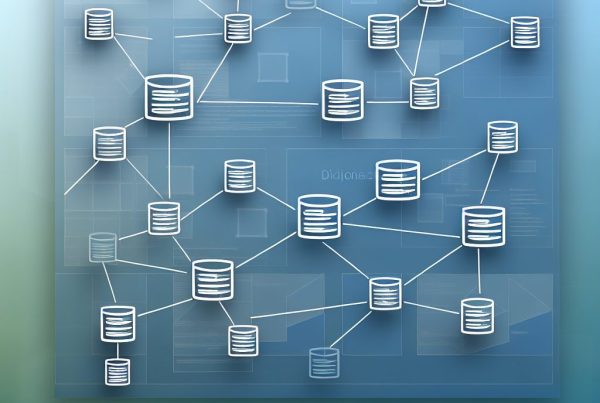The Role of Validators in Blockchain Health
In the rapidly evolving world of cryptocurrency, the concept of validators plays a crucial role in maintaining the integrity and functionality of blockchain networks. Validators are essential components of various consensus mechanisms, particularly in proof-of-stake (PoS) and delegated proof-of-stake (DPoS) systems. This article delves into the multifaceted role of validators, their impact on blockchain health, and the broader implications for the cryptocurrency industry.
Understanding Validators
Validators are nodes in a blockchain network responsible for verifying transactions and adding them to the blockchain. Unlike miners in proof-of-work (PoW) systems, who compete to solve complex mathematical problems, validators are selected based on the amount of cryptocurrency they hold and are willing to “stake” as collateral. This staking process not only secures the network but also incentivizes validators to act honestly.
In essence, validators ensure that the blockchain remains decentralized, secure, and efficient. Their role is pivotal in preventing double-spending, maintaining consensus, and facilitating the overall health of the blockchain ecosystem.
The Importance of Validators in Blockchain Health
The health of a blockchain network is determined by several factors, including security, decentralization, and transaction speed. Validators contribute significantly to these aspects:
- Security: Validators help secure the network by validating transactions and blocks. Their economic stake ensures that they have a vested interest in maintaining the integrity of the blockchain.
- Decentralization: A diverse set of validators enhances decentralization, reducing the risk of a single point of failure and making the network more resilient against attacks.
- Transaction Speed: Efficient validators can process transactions quickly, improving the overall user experience and making the blockchain more competitive.
How Validators Operate
Validators operate through a consensus mechanism that determines how transactions are verified and added to the blockchain. In PoS systems, validators are chosen to create new blocks based on the number of coins they hold and are willing to lock up as collateral. This process is often referred to as “staking.”
Once selected, validators validate transactions and propose new blocks. Other validators then confirm the validity of these blocks before they are added to the blockchain. This collaborative process ensures that all transactions are legitimate and that the network remains secure.

Types of Validators
There are various types of validators, each serving different purposes within their respective blockchain networks:
- Full Validators: These nodes maintain a complete copy of the blockchain and participate in the consensus process by validating transactions and blocks.
- Light Validators: These nodes do not store the entire blockchain but can still validate transactions by relying on full validators for information.
- Delegated Validators: In DPoS systems, token holders can delegate their voting power to validators, allowing them to participate in the consensus process without running a node themselves.
Real-World Applications of Validators
Validators are integral to several prominent blockchain networks, each showcasing unique implementations and benefits:
Ethereum 2.0
Ethereum’s transition from PoW to PoS with Ethereum 2.0 exemplifies the importance of validators. In this new system, validators are required to stake 32 ETH to participate in the consensus process. This shift aims to enhance scalability, security, and sustainability, addressing the limitations of the previous PoW model.
Cardano
Cardano employs a unique PoS mechanism called Ouroboros, which relies on a network of validators to secure the blockchain. The protocol divides time into epochs and slots, allowing validators to take turns creating blocks. This structured approach enhances security and decentralization.
Tezos
Tezos utilizes a self-amending blockchain model where validators, known as “bakers,” can propose and vote on protocol upgrades. This governance model empowers the community and ensures that the network can evolve without hard forks.
The Economic Incentives for Validators
Validators are incentivized to act honestly through a combination of rewards and penalties:
- Block Rewards: Validators receive rewards in the form of newly minted coins for successfully validating transactions and creating new blocks.
- Transaction Fees: In addition to block rewards, validators earn transaction fees from users who wish to have their transactions prioritized.
- Slashing: Validators can face penalties, known as slashing, for malicious behavior or failing to validate transactions correctly. This serves as a deterrent against dishonest actions.
Challenges Faced by Validators
Despite their critical role, validators face several challenges that can impact their effectiveness and the overall health of the blockchain:
- Centralization Risks: If a small number of validators control a significant portion of the network, it can lead to centralization, undermining the benefits of decentralization.
- Technical Expertise: Running a validator node requires technical knowledge and resources, which can be a barrier for some potential validators.
- Market Volatility: The value of the staked cryptocurrency can fluctuate significantly, impacting the economic incentives for validators.
The Future of Validators in Blockchain
The role of validators is expected to evolve as blockchain technology continues to advance. Innovations in consensus mechanisms, such as sharding and layer-2 solutions, may change how validators operate and interact with the network.
Moreover, as more projects adopt PoS and DPoS systems, the demand for reliable and efficient validators will increase. This trend may lead to the emergence of professional validator services, allowing individuals to participate in staking without the technical burden of running their own nodes.
FAQs
What is a validator in blockchain?
A validator is a node in a blockchain network responsible for verifying transactions and adding them to the blockchain, primarily in proof-of-stake systems.
How do validators earn rewards?
Validators earn rewards through block rewards and transaction fees for successfully validating transactions and creating new blocks.
What are the risks associated with being a validator?
Validators face risks such as centralization, technical challenges, and market volatility that can impact their economic incentives.
Can anyone become a validator?
Yes, anyone can become a validator, but it typically requires a certain amount of cryptocurrency to stake and some technical knowledge to run a node.
Conclusion
Validators play a vital role in ensuring the health and security of blockchain networks. Their ability to verify transactions, maintain decentralization, and provide economic incentives is crucial for the sustainability of the cryptocurrency ecosystem. As the industry continues to evolve, the importance of validators will only grow, shaping the future of blockchain technology.
For the latest updates on cryptocurrency news and price tracking, visit Bitrabo. Stay connected with me on social media: X, Instagram, Facebook, Threads.
Disclaimer: This article is for informational purposes only and should not be considered financial advice. Always conduct your own research before making investment decisions.
The Crypto Watchlist of the Week 🔎
Subscribe to receive expert-curated projects with real potential—plus trends, risks, and insights that matter. Get handpicked crypto projects, deep analysis & market updates delivered to you.


